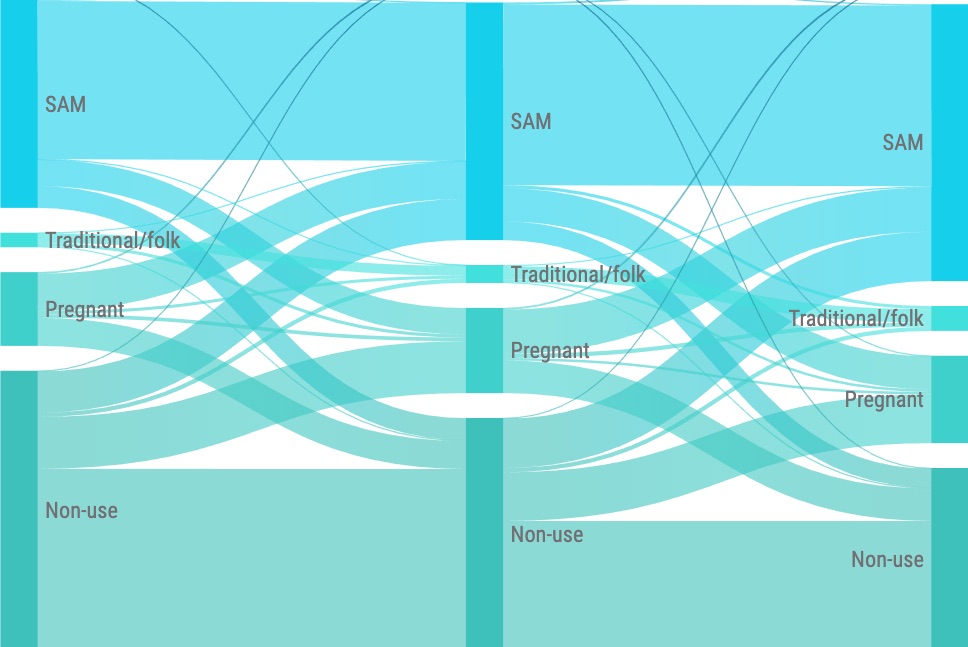
Date
October 21, 2019
About the PACE Project
PACE: Policy, Advocacy, and Communication Enhanced for Population and Reproductive Health
Ensuring that family planning, reproductive health, and population issues are key for sustainable and equitable...
USAID
Evidence shows women need greater voice and choice in family planning
WASHINGTON, D.C.—Women in nine Asian and African countries are experiencing unintended pregnancies in part because of their dissatisfaction with contraceptive options available to them. That’s according to data released today by PRB as it unveiled its “Choices and Challenges” tool, which identifies trends and provides insights on why women switch or stop using various family planning methods.
PRB developed the tool using data from the Demographic and Health Surveys, which track and analyze population, health, HIV and nutrition in more than 90 countries. Globally, 56 percent of married women ages 15 to 49 use modern contraceptive methods, such as the pill, IUDs, injectables and condoms.
But for a variety of reasons, such as side effects or health concerns, a significant number of women either switch methods or stop using contraception altogether. In some countries, more than 60 percent of births that occurred within 12 months of a woman discontinuing contraceptives were unintended.
PRB President Jeff Jordan said that if family planning efforts are going to be successful over the long-term, the family planning community must spend more time listening to the women and understanding their concerns and needs.
“Women all over the world have made it crystal clear that they want to be able to choose when and how often they become pregnant,” Jordan said. “But as our tool demonstrates, many are dissatisfied with the contraceptive options available to them. As the global family community looks towards a shared vision for 2030, it is critically important that we work closely with women and couples to develop programs based around their needs and preferences.”
About Population Reference Bureau (PRB)
PRB informs people around the world about population, health, and the environment, and empowers them to use that information to advance the well-being of current and future generations. Find out more at www.prb.org. Follow us on Twitter @PRBdata.
Funding for the data tool was provided by the U.S. Agency for International Development through the Policy, Advocacy, and Communication Enhanced for Population and Reproductive Health (PACE) project.

 ">
">




